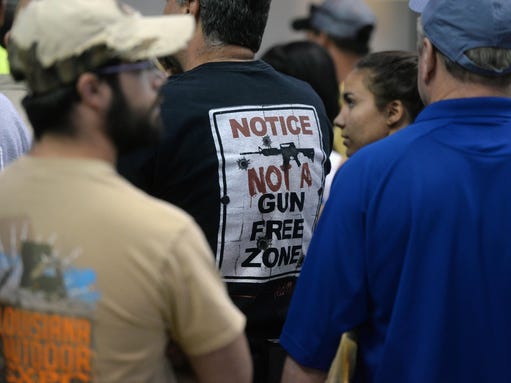Retired U.S. Army Gen. Russel Honore, Louisiana's most well-known 21st century military hero, said America is mired in a state of denial about its gun culture and that's harming the country.
"As a country we're in a state of denial because we've confused the right to bear arms with the right to carry arms all the time anywhere or anyplace you want," Honore told Gannett Louisiana on Monday. "We have to have a different kind of conversation in America and be prepared to speak about the politically unspeakable."
Honore said the string of recent mass gun murders — culminating with the tragic movie theater shooting in Lafayette Thursday in which two victims died — should provide a wake up call.
"It breaks my heart to see that happen in my home state or anywhere in America," he said. "We've got a problem in this country, and at some point the politicians have to get down into the community and find some answers to this problem."
Honore had considered running for governor this fall but decided against making the race earlier this summer.
The retired army general, best known for his role leading the Hurricane Katrina recovery in New Orleans, said during his time in the military soldiers "were required to clear their weapons and turn them in as soon as they came in from the field."
"The best place for weapons when you're not in the field is to be locked up in the garrison," Honore' said. "Our biggest problem before Desert Storm was (soldiers) accidentally firing their weapons, and they're trained.
"I've been around guns all my life, but when I was growing up they were locked in the cabinet unless you needed them for hunting."
Honore also said he disagrees with those advocating for military men and women at recruitment offices to be armed. Some armed civilians have taken it upon themselves to stand guard at recruitment locations since the mass shooting at a Tennessee office this summer.
One such civilian accidentally fired a round at an Ohio recruitment office last week. Nobody was injured.
"I don't think it's a good idea to arm military at the recruitment offices or to have civilians there with guns," Honore said. "That's the job of law enforcement. On our bases, yes, we guard our gates and our bases, but not at the recruitment offices."




0 komentar:
Posting Komentar